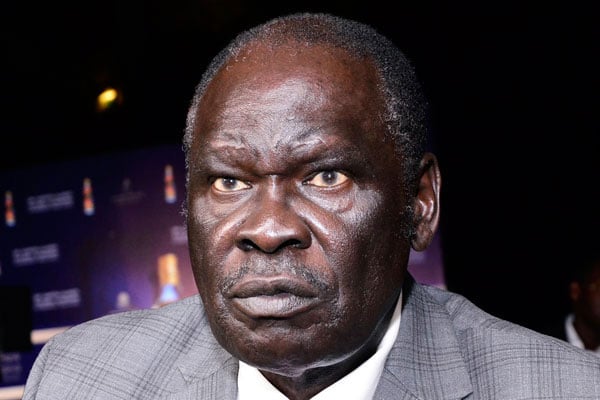Prime
Develop your countries using skills acquired, Onek tells refugees

The Minister for Relief, Disaster Preparedness and Refugees, Mr Hilary Onek, has advised refugees to use the skills acquired in Uganda to rebuild their countries.
Mr Onek said government and other development partners have facilitated a number of projects targeting the wellbeing of refugees in order to impart skills aimed at improving their livelihoods.
Speaking at a graduation ceremony attended by 360 refugees at Panyadoli Self-help School in Kiryandongo District last week, Mr Onek said many refugees had been equipped with employable skills.
“There has been signing of a peace agreement in our neighbouring [South] Sudan. I urge the graduates to use the skills they have acquired to develop the economies of their nations,” Mr Onek said.
More than 360 refugees from the Democratic Republic of Congo, South Sudan and Kenya graduated in different vocational fields of welding, catering, motor vehicle technology and mechanics.
The training was mainly supported by Windle International Uganda under their skills development project for refugees in Kiryandongo and Adjumani districts.
Onek further advised the graduates to focus on book keeping in order to improve on accountability.
Beneficiary
Mr Peter Dori, the refugee skills education focal person, said they passed out 360 graduates who enrolled for certificate courses in 2019 and more than 60,000 refugees have benefited from training in the last two years.
“We, therefore, work to help refugees, displaced people and others affected by conflict to access education and training,” he said.
Mr Jackson Kinyera, a beneficiary of the training, who started a welding project in Kigumba Town Council after completing a certificate, said: “This training is very good because my friends who did it have created their own jobs and some are employing others.” In 2017, Windle International Uganda made a commitment with government to support education and skilling for refugees and lead vocationalisation of secondary education.
Windle International Uganda has been a leading provider of access to university education, post-primary education, and vocational training for conflict-affected Africans since 1996.
Ms Monica Mugisha, the settlement commandant at Kiryandongo refugee settlement camp, said they have registered 6,500 refugees.
Refugee population challenge
More than one million refugees have fled to Uganda in the last two and a half years, making the Pearl of Africa, one of the largest refugee-hosting countries in the world. Uganda hosts more than 1.3 million refugees.
Wars, violence and persecution in the Horn of Africa and Great Lakes Region were the main drivers of forced displacement into Uganda. South Sudan’s conflict, insecurity and ethnic violence in the Democratic Republic of the Congo (DRC) and political instability and human rights violations in Burundi have been some of the latest factors fuelling instability.
In June 2018, UNHCR reported that South Sudanese had the largest refugee population in Uganda (985,512 people), followed by refugees from the DRC (271,967) and Burundi (36,677).
Twelve of Uganda’s 121 districts host the overwhelming majority of refugees. About 92 per cent live in settlements alongside the local communities, mainly in northern Uganda or West Nile (Adjumani, Arua, Koboko, Moyo, Lamwo and Yumbe districts) with smaller numbers in central Uganda or Mid-West (Kiryandongo and Hoima districts) and southern Uganda or South West (Kyegegwa, Kamwenge and Isingiro districts).



